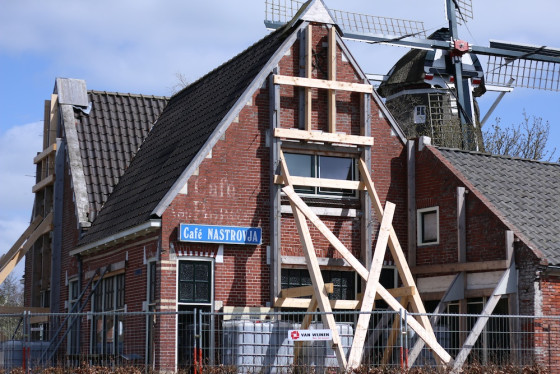No evidence of NAM criminal intent in Groningen gas scandal, public prosecutor says


The public prosecution department said on Friday it had not found evidence that the lives of people living in parts of Groningen hit by subsidence-related earthquakes were actually at risk.
And despite an ‘intensive investigation’ there is no evidence that NAM, the company charged with extracting natural gas from under the province, had acted in a ‘deliberately criminal way’, the department said in a statement.
The result of the probe means the department is recommending taking legal action against NAM, although a court will take the final decision. The case was brought by a number of people affected by the problems, who wanted to force the department to take up the case.
The Article 12 procedure is used to force an investigation by people who are not satisfied with official reasoning why a case should be brought.
The chairman of lobby group Groninger Bodem Beweging described the public prosecution department’s decision as ‘incomprehensible’.
‘Dozens of people had to leave their homes because of the risk of collapse,’ Jelle van der Knoop told NOS. ‘It may not be a question of intention, but science had shown that pressing ahead with extracting gas would put lives in danger.’
The first gas was piped up from three kilometers under Groningen province in 1959 and the field was said to be one of the biggest in the world. The first earthquake hit in 1986 and there have been over 1,000 since then.
Most were light and considered irrelevant by The Hague. But in 2012 the province was hit by a quake measuring 3.6 on the Richter scale which caused considerable damage to hundreds of homes and other buildings.
Damage
In 2013 the quakes continued and the government’s cultural heritage service said they had damaged 69 out of the 100 listed buildings in the northern part of the province.
NAM, then in charge of compensating home owners and repairing the damage, said it had received 9,100 reports of damage to homes in the region over the past year. In 2014, ministers first agreed to slow down production – from 53 billion cubic metres a year to 42 billion – to reduce the risk of quakes.
In 2015, the then economic affairs minister Henk Kamp admitted that the government had not taken the safety of Groningers sufficiently into account, following the publication of a highly criticial report by the Dutch safety board OVV. He further wound down production.
In 2018, the government decided that gas extraction would stop altogether in 2030. Describing the decision as ‘extremely important’, prime minister Rutte told reporters that the impact of the gas extraction – the earthquakes – are no longer acceptable and that ‘safety has priority’.
Government bodies, NAM and local interest groups are still in dispute over the compensation package.
Thank you for donating to DutchNews.nl.
We could not provide the Dutch News service, and keep it free of charge, without the generous support of our readers. Your donations allow us to report on issues you tell us matter, and provide you with a summary of the most important Dutch news each day.
Make a donation